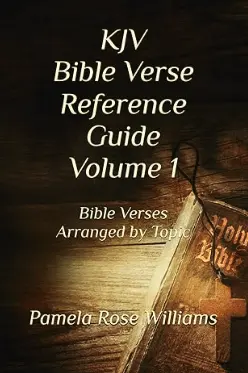What does God teach about education?
If we were to go all the way back to the beginning of human history and work our way forward in time, we see that many cultures have existed. Each culture had their own beliefs, values, customs, and behaviors, that were passed on from generation to generation. How did they teach each generation and how does it compare to God’s philosophy of education?
What is a culture?
If you ask people what a culture is, many will describe it as a group of people and the things they do, where they live, their customs, and history. But, they seldom get into what they believe or what they teach to their children. Websters 1828 dictionary originally defined culture as:
CULTURE, noun [Latin See Cultivate.]
1. The act of tilling and preparing the earth for crops; cultivation; the application of labor or other means of improvement.
We ought to blame the culture not the soil.
2. The application of labor or other means to improve good qualities in, or growth; as the culture of the mind; the culture of virtue.
3. The application of labor or other means in producing; as the culture of corn, or grass.
4. Any labor or means employed for improvement, correction or growth.
CULTURE, verb transitive To cultivate.
If we ask how cultures improve, grow, get better, correct faults, and establish power to manage the culture, we can look at the verb for culture, which is cultivate (2):
CULTIVATE, verb transitive [Latin , to till, to dwell.]
1. To till; to prepare for crops; to manure, plow, dress, sow and reap; to labor on manage and improve in husbandry; as, to cultivate land; to cultivate a farm.
2. To improve by labor or study; to advance the growth of; to refine and improve by correction of faults, and enlargement of powers or good qualities; as, to cultivate talents; to cultivate a taste for poetry.
3. To study; to labor to improve or advance; as, to cultivate philosophy; to cultivate the mind.
4. To cherish; to foster; to labor to promote and increase; as, to cultivate the love of excellence; to cultivate gracious affections.
5. To improve; to meliorate, or to labor to make better; to correct; to civilize; as, to cultivate the wild savage.
6. To raise or produce by tillage; as, to cultivate corn or grass.
Oddly enough, the root of the word culture is the word cult. Many people, when asked what a cult is, will describe a group of people with weird, or crazy beliefs and practices. What they fail to realize is that often, people in “cults” say the same thing about them.
However, if you go back in time, you can see that many cultures have existed. Many of them exist to this day, but many more have perished. Often, archaeologists and historians research and document these cultures to learn about them. What is most often found is that those cultures that have perished, many were conquered by other dangerous cultures that no longer exist. Likewise, many started teaching their children values and practices that led to their demise within three generations.
We won’t get into what specifically they taught. But instead, a more practical approach is to know what God defines as the healthy normal. That is where the motto, “If you know the normal, the abnormal stands out” is a good way of being grounded by God so that we can easily identify unhealthy abnormal things and teachings. We can learn more about this and how Jesus resisted temptation to sin in the article: What does the bible teach Jesus did to resist temptation?
What is a Biblically sound way to teach?
The oral method of teaching
If we go all the way back to the Garden of Eden, God told Adam, who later told Eve, what God expected of them while they were in the Garden of Eden. While that did not work well and they ended up sinning and being expelled, many others used this “oral method of teaching” over the centuries. What we often find out it that when people did not do what God told them, they suffered similar, if not worse consequences. However, oral teaching still has an important role in education the culture and the next generations that will one day lead the culture.
What is most important is what is being taught. Throughout history, we see that there were Biblical and non-Biblical things taught and each had their outcomes. But, one thing is clear, man has a long history of trying to redefine God’s Wisdom in Biblical truth with man-made wisdom. Over time you see this play out in the lineages of Cain, who murdered his brother Abel, and Seth, another brother.
After Cain murdered Seth, he was expelled from the presence of Adam and Eve and lived a wicked life elsewhere with others (not mentioned) from the family (Genesis 4). On the other hand, Seth, his other brother, led his family striving to please God. In the end, if you track both lineages ten generations, Cain’s lineage all died in the flood, and those remaining in Seth’s lineage, eight in total, were rescued by God in the Ark from the flood (Genesis 4-7).
We see a lot of information about the two lineages, but it is clear, God blessed those in the culture that loved God and found grace in the eyes of the Lord (Genesis 6:8-7:1). Even after the flood, Seth’s lineage continued in Genesis through the calling of Abram (AKA Abraham) and oral tradition and teaching took on even more of an important role. For the Hebrew culture, the passing down of faith and history orally as an educational method was central to their cultural identify and relationship with God.
The Hebrews also saw that their sinful actions resulted in harsh punishment to the individual who disobeyed God, or blessings to those that honored and obeyed God. However, there was also a motivation factor that Jesus addressed while He walked the earth (Matthew 23, Luke 6, 10, 11, Jude 1).
Historically, other models began to flourish in different peoples that created cultures that passed down traditions orally, but it was not focused on God as the head of creation and education. Instead, their focus was to honor those of the past and honor them to the point of worship. It was more focused on a horizontal collective of people seeking to adopt the personal values and practices of one another.
The problem is as each generation passed; they drifted culturally more towards different attitudes about living and right and wrong. Because they had not relationship with God their failing was a result of their ignorance and no foundation in God. Therefore, they saw no demonstration of His power and authority through miracles, signs, and wonders nor speaking directly to man that showed He was all powerful, all knowing, and perfectly holy.
Therefore, if you believe there is no supreme being and you relatives are your standard of holiness and object of worship, your attitudes toward sin and holiness would be reflective of their imperfections and flaws. This also leads to works based thinking that only good things happen to good people and only bad things happen to bad people. This then motivated people out of fear and a desire to be honored after you die.
This then leads to popular opinion and everyone doing what they think is right in their own eyes. This leads to disaster as competing opinions strive for power and acceptance. God mentions this in several places, but a good summary is as follows:
Proverbs 21:2-18. “Every way of a man is right in his own eyes:
but the LORD pondereth the hearts.
3 To do justice and judgment
is more acceptable to the LORD than sacrifice.
4 An high look, and a proud heart,
and the plowing of the wicked, is sin.
5 The thoughts of the diligent tend only to plenteousness;
but of every one that is hasty only to want.
6 The getting of treasures by a lying tongue
is a vanity tossed to and fro of them that seek death.
7 The robbery of the wicked shall destroy them;
because they refuse to do judgment.
8 The way of man is froward and strange:
but as for the pure, his work is right.
9 It is better to dwell in a corner of the housetop,
than with a brawling woman in a wide house.
10 The soul of the wicked desireth evil:
his neighbour findeth no favour in his eyes.
11 When the scorner is punished, the simple is made wise:
and when the wise is instructed, he receiveth knowledge.
12 The righteous man wisely considereth the house of the wicked:
but God overthroweth the wicked for their wickedness.
13 Whoso stoppeth his ears at the cry of the poor,
he also shall cry himself, but shall not be heard.
14 A gift in secret pacifieth anger:
and a reward in the bosom strong wrath.
15 It is joy to the just to do judgment:
but destruction shall be to the workers of iniquity.
16 The man that wandereth out of the way of understanding
shall remain in the congregation of the dead.
17 He that loveth pleasure shall be a poor man:
he that loveth wine and oil shall not be rich.
18 The wicked shall be a ransom for the righteous,
and the transgressor for the upright.”
The written method of teaching
The oral tradition of teaching by the Hebrews was later supplemented with the written Scriptures from God and other writings. First was the Torah, the first five books of the Bible written by Moses as was dictated by God. Second was the Mishna, a second century collections documenting the oral traditions passed down from generation to generation. The Mishna was later combined with a group of commentaries called the Gemara to become the Talmud. Together these writings are still used daily by observant Jews. Later, as God inspired the Apostles to write the New Testament, He also gave them the ability to remember everything they experienced by the power of God’s Holy Spirit as follows:
John 16:1-15. “These things have I spoken unto you, that ye should not be offended. 2 They shall put you out of the synagogues: yea, the time cometh, that whosoever killeth you will think that he doeth God service. 3 And these things will they do unto you, because they have not known the Father, nor me. 4 But these things have I told you, that when the time shall come, ye may remember that I told you of them. And these things I said not unto you at the beginning, because I was with you. 5 But now I go my way to him that sent me; and none of you asketh me, Whither goest thou? 6 But because I have said these things unto you, sorrow hath filled your heart. 7 Nevertheless I tell you the truth; It is expedient for you that I go away: for if I go not away, the Comforter will not come unto you; but if I depart, I will send him unto you. 8 And when he is come, he will reprove the world of sin, and of righteousness, and of judgment: 9 Of sin, because they believe not on me; 10 Of righteousness, because I go to my Father, and ye see me no more; 11 Of judgment, because the prince of this world is judged. 12 I have yet many things to say unto you, but ye cannot bear them now. 13 Howbeit when he, the Spirit of truth, is come, he will guide you into all truth: for he shall not speak of himself; but whatsoever he shall hear, that shall he speak: and he will shew you things to come. 14 He shall glorify me: for he shall receive of mine, and shall shew it unto you. 15 All things that the Father hath are mine: therefore said I, that he shall take of mine, and shall shew it unto you.”
The relationship with God in education
When following history through Scripture, it can be clearly seen that the development of a relationship between God and man relied on several factors. First, was recognizing God for Who He was and that He would reward those that sought Him. Hebrews 11:6 tells us of how Enoch, in Seth’s lineage pleased God by faith in God and how it is impossible to please God without faith:
Hebrews 11:5-6. “By faith Enoch was translated that he should not see death; and was not found, because God had translated him: for before his translation he had this testimony, that he pleased God. 6 But without faith it is impossible to please him: for he that cometh to God must believe that he is, and that he is a rewarder of them that diligently seek him.
It is then faith in God that was known in the Old Testament as pleasing to God and rewards were given by God because of their faith and actions they took to please God because they loved Him.
The foundation of God’s Word in education
In addition to the relationship aspect of education, there is a foundation of study of God’s Word in what is taught. We see a clear commandment concerning the immersion in God’s Word and the teaching to others as well:
Deuteronomy 6:1-9. ”Now these are the commandments, the statutes, and the judgments, which the LORD your God commanded to teach you, that ye might do them in the land whither ye go to possess it: 2 That thou mightest fear the LORD thy God, to keep all his statutes and his commandments, which I command thee, thou, and thy son, and thy son’s son, all the days of thy life; and that thy days may be prolonged. 3 Hear therefore, O Israel, and observe to do it; that it may be well with thee, and that ye may increase mightily, as the LORD God of thy fathers hath promised thee, in the land that floweth with milk and honey. 4 Hear, O Israel: The LORD our God is one LORD: 5 And thou shalt love the LORD thy God with all thine heart, and with all thy soul, and with all thy might. 6 And these words, which I command thee this day, shall be in thine heart: 7 And thou shalt teach them diligently unto thy children, and shalt talk of them when thou sittest in thine house, and when thou walkest by the way, and when thou liest down, and when thou risest up. 8 And thou shalt bind them for a sign upon thine hand, and they shall be as frontlets between thine eyes. 9 And thou shalt write them upon the posts of thy house, and on thy gates.”
We see several things here as follows:
- Deuteronomy 6:1 – God commanded that the commandments, statutes, and judgments be taught locally
- Deuteronomy 6:2 – God wanted them to be taught to their children and grandchildren their entire life
- Deuteronomy 6:3 – God wanted them to observe how it was being done so that they would be a blessing to them and their families and prolong thier lives
- Deuteronomy 6:4 – God set the foundation of education as being founded on Him and Him alone
- Deuteronomy 6:5 – To love Him (God) and Him alone, with all their heart, and all their soul in total commitment to Him and not others
- Deuteronomy 6:6 – God wanted them to keep HIs Words in their hearts through study and memorization
- Deuteronomy 6:7 – God wanted them to diligently teach them to their children in their house and outside of their house in their community, starting the moment, they get up until the moment they lie down to go to sleep
- Deuteronomy 6:8 – God wanted them to “bind” them for a sign on their hand and on their foreheads between their eyes representing keeping God’s Word in the center of everything they think and do. Note: Phylacteries, used in certain Jewish circles centuries later, were thought to be a fulfillment of this and even had a small Deuteronomy 6 scroll inside as a literal practice representing this commandment. While this may be symbolic, God wanted all thinking and actions to be in line with His Word.
- Deuteronomy 6:9 – God wanted them posted in their homes and outside their homes for all to see so they are constantly reminded when seen by them and others.
The end goal of Godly education
In the end, God wants ALL education and activities to be immersed in His Word so that we are grounded as follows in 2 Timothy 3:10-17:
- Doctrine – teaching God’s commandments and expectations
- Reproof – identification of wrongdoing and rebuke to stop it
- Correction – identification of what must be done to correct wrongdoing
- Instruction in righteousness – teaching how to be righteous in our daily lives
- Perfection – Furnish us with everything we need to strive for His model of perfection
We see then that the end goal is that we become more like God, conformed to the image of His Son in all that we say and do. God knew from eternity past that one day we would trust His Son as our Savior to deliver us from our sins. But He also wanted us to become conformed to the image of His Son because we love Him for first loving us.
Romans 8:28-32. “And we know that all things work together for good to them that love God, to them who are the called according to his purpose. 29 For whom he did foreknow, he also did predestinate to be conformed to the image of his Son, that he might be the firstborn among many brethren. 30 Moreover whom he did predestinate, them he also called: and whom he called, them he also justified: and whom he justified, them he also glorified.
31 What shall we then say to these things? If God be for us, who can be against us?”1 John 4:17-19. “Herein is our love made perfect, that we may have boldness in the day of judgment: because as he is, so are we in this world. 18 There is no fear in love; but perfect love casteth out fear: because fear hath torment. He that feareth is not made perfect in love. 19 We love him, because he first loved us.”
What do we do now?
There is much more that we can discuss, but the important thing is that we start by having a relationship with Jesus Christ and study to show ourselves approved so we may be more like Him:
2 Timothy 2:15-19. “Study to shew thyself approved unto God, a workman that needeth not to be ashamed, rightly dividing the word of truth. 16 But shun profane and vain babblings: for they will increase unto more ungodliness. 17 And their word will eat as doth a canker: of whom is Hymenaeus and Philetus; 18 Who concerning the truth have erred, saying that the resurrection is past already; and overthrow the faith of some. 19 Nevertheless the foundation of God standeth sure, having this seal, The Lord knoweth them”
To learn more about having a relationship with Jesus and being educated see the following:
- Read Got Jesus?
- Free Bible study course: How to Study the Bible video course
- Free Biblical Discipleship course to grow in your faith: Biblical Discipleship Foundations course with free workbook download
- Other books to learn about God and growing in faith: All books to learn from
- Extensive study on Christian education: Silenced in the Schoolhouse: How Biblical Illiteracy in our schools is destroying America – Paperback & Kindle – (PDF)
Final Thoughts
There is so much we can learn from God and His Word and no end to how He can change our lives. We hope and pray that this has sparked interest so that you come to love God even more than we do. In the end, it is studying, memorizing Scriptures that God will bring to mind in situations, and fellowshipping in a God Bible preaching and teaching church with others. If there are any questions, please do not hesitate to reach out to us by mail or phone found at the foot of our website pages.
(1) https://webstersdictionary1828.com/Dictionary/culture
(2) https://webstersdictionary1828.com/Dictionary/Cultivate

Dr. Michael L. Williams, Head of Ministry Operations and Technology at Christianity Every Day, is a Christ-centered Author, Educator, Biblical Counselor and Advisor. He is ordained in Pastoral Ministry and formerly the founding Pastor of Selah Mountain Ministries, a church started along with his wife, Pamela Rose, after several years of pastoral experience and training in Biblical Counseling. Selah Mountain provided Biblical counseling and education to the public on how to overcome life issues Biblically on topics such as anger management, marriage, addictions, and other subjects – often referred to as mental illnesses. To learn more about Dr. Mike visit the About page.

































































